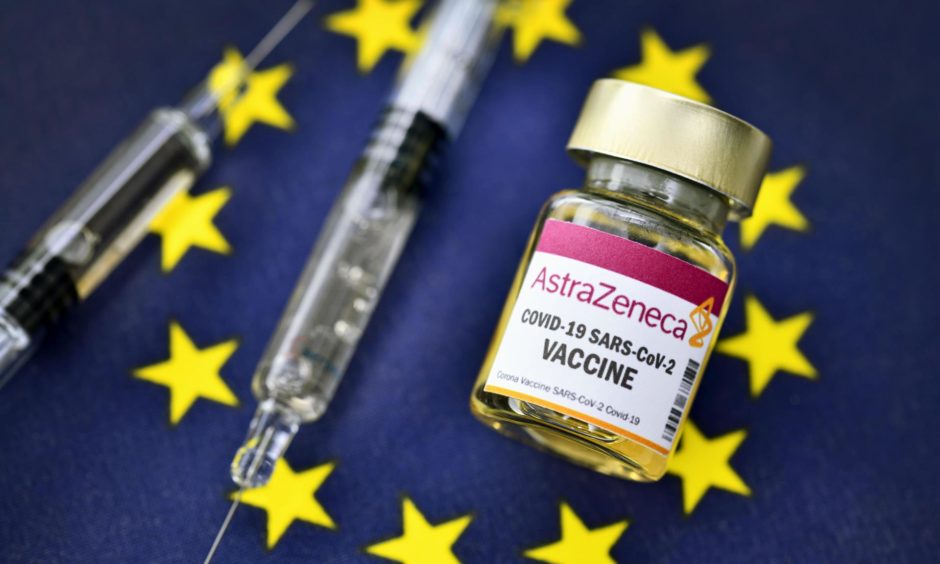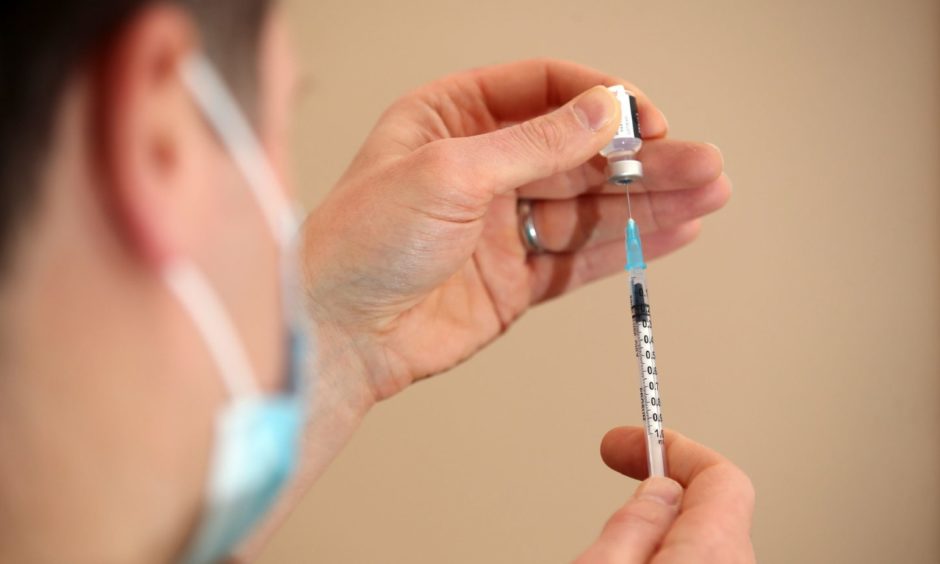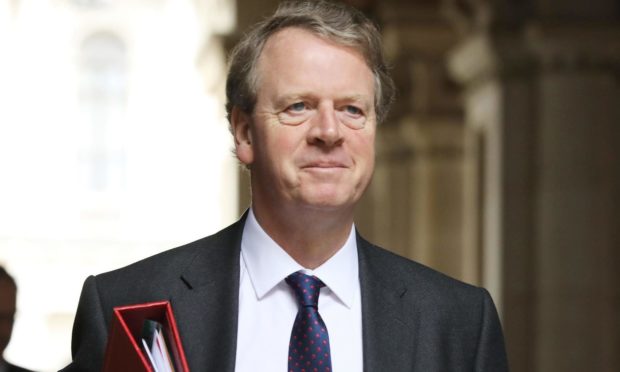Alister Jack will hail the UK’s coronavirus vaccine programme as the “envy of the world” just hours after Ireland suspended its Oxford/AstraZeneca rollout over blood clot fears.
The Scottish Secretary will use his speech on the final day of the Scottish Conservative spring conference to hail the scheme as a “truly astonishing achievement” with work taking place “on a scale that dwarfs anything since the war”.
Mr Jack will tell the conference that “millions of doses of Valneva’s vaccine are rolling off the production line at a high-tech plant in Livingston, ready for approval” and that things are now moving at such a pace “that we hope every adult in the country will have received at least an initial dose of vaccine by late July”.
But it comes after use of the AstraZeneca vaccine, which accounts for around 11 million of the jabs already administered in the UK, was temporarily suspended in Ireland on Sunday.

The Irish Minister for Health Stephen Donnelly said it was a “precautionary step” and the UK’s Medicines and Healthcare products Regulatory Agency (MHRA) said it is aware of the suspension and is “closely reviewing reports”
“Given the large number of doses administered, and the frequency at which blood clots can occur naturally, the evidence available does not suggest the vaccine is the cause,” an MHRA spokesperson said.
Several other European countries have temporarily halted AstraZeneca vaccinations following reports of people suffering blood clots, with around 30 cases of “thromboembolic events” recorded so far.
Reports of deaths
A death involving a blood clot in a person who had recently received the vaccination was reported in Denmark, while another person in Austria was admitted to hospital with a blockage in the arteries in the lungs.
A 50-year-old man is also thought to have died in Italy from deep vein thrombosis, while there was an unconfirmed report of another death in the country.
Denmark, Norway and Iceland have all halted use of the drug while reports are investigated and Italy has followed Austria, Estonia, Latvia, Luxembourg and Lithuania in banning jabs from one particular batch after reports of a death.

Ireland’s deputy chief medical officer Dr Ronan Glynn said the recommendation to suspend use of the vaccine had been made following a report from the Norwegian Medicines Agency of four new cases of serious blood clotting events in adults.
“It has not been concluded that there is any link between the Covid-19 vaccine AstraZeneca and these cases,” he said.“However, acting on the precautionary principle, and pending receipt of further information, the National Immunisation Advisory Committee (NIAC) has recommended the temporary deferral of the Covid-19 vaccine AstraZeneca vaccination programme in Ireland.”
An ‘excellent vaccine’
The World Heath Organisation has insisted countries should not stop using the vaccine over fears it causes blood clots because there is no indication this is true.
Spokeswoman Margaret Harries confirmed the organisation is investigating the reports, as it does any safety questions, but stressed the AstraZeneca jab is an “excellent vaccine” and should continue to be used.

AstraZeneca said last week that the recorded number of clots in vaccinated people was “significantly lower… than would be expected among the general population”.
“An analysis of our safety data of more than 10 million records has shown no evidence of an increased risk of pulmonary embolism or deep vein thrombosis,” a spokesperson said.
The European Medicines Agency, the EU’s medicines regulator, has also said there is no indication the jab is causing the blood clots, and Germany, Australia and Mexico are all continuing their rollout of the vaccine.
Stop-start approach ‘highly undesirable’
Prof Adam Finn, a member of the UK’s Joint Committee on Vaccination and Immunisation (JCVI), warned that a “stop-start approach” to the vaccine programme needed to be considered carefully.
“If clear evidence of serious or life threatening side-effects emerges that will have important consequences,” he told the BBC.
“However so far it hasn’t and it’s highly undesirable to disrupt a complex and urgent programme every time people develop illnesses after receiving vaccine that may be coincidental and not causally related.”
